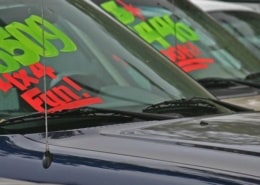The Impact of Mileage on Used Car Pricing: For Buyers and Sellers
Learn how mileage can make or break your used car’s value.
How Mileage Affects Used Car Pricing
The used car market constantly changes, and many factors influence the prices of pre-owned vehicles. Among these factors, mileage stands out as one of the most important. The number of miles a car has traveled can significantly affect its value, making it crucial for buyers and sellers to understand. High mileage can mean more wear and tear, often leading to lower prices, while low mileage can keep a car’s value high.
Key Takeaways
- Evaluate Mileage’s Impact on Value: Understand how mileage affects the price and overall value of a used car.
- Consider Maintenance History: A well-maintained high-mileage car can be a better investment than a poorly maintained low-mileage one.
- Balance Mileage with Other Factors: For a well-rounded valuation, factor in the car’s age, make, model, and condition alongside mileage.
Knowing how mileage impacts used car pricing can help buyers make better decisions and sellers get the best vehicle price. In this article, we explore how mileage influences used car pricing and offer practical advice to help you navigate this critical aspect of buying and selling used cars.
Used Car Buying Tip: If you’re looking for a used car, you may have noticed that finding a reasonable price can be challenging in today’s market. Many buyers end up paying more than the suggested retail price. But don’t worry! You can still get a great deal on a used vehicle by requesting a used car price quote to compare dealer prices in your area.
Understanding the Basics of Used Car Pricing
Used car pricing is determined by combining elements, including the car’s make and model, age, condition, and service history.
However, mileage often plays a pivotal role. It is a key indicator of a car’s usage and wear and tear, affecting everything from mechanical reliability to market perception.
By examining how mileage impacts used car pricing, we can better appreciate its importance in the valuation process.
Impact of Mileage on Used Car Pricing
Mileage significantly influences used car pricing by reflecting the vehicle’s wear and tear. Higher mileage generally leads to lower prices due to increased maintenance needs and reduced reliability, while lower mileage can command higher prices.
Understanding this relationship is key for buyers and sellers in the used car market.
1. Why Mileage Matters
Mileage is crucial in used car pricing because it directly correlates with the vehicle’s wear and tear. Generally, the higher the mileage, the more wear the car has undergone. This increased usage can lead to frequent maintenance needs, potential mechanical failures, and reduced reliability.
Consequently, buyers are often willing to pay less for high-mileage vehicles, anticipating future repair costs and a shorter remaining lifespan.
2. The Relationship Between Mileage and Depreciation
Depreciation is the process by which a car loses value over time. Mileage accelerates this depreciation, with vehicles losing a significant portion of their value as they accumulate miles.
For example, a vehicle typically loses about 20% of its value within the first year and about 15% each subsequent year. High mileage can exacerbate this depreciation, leading to steeper declines in value compared to low-mileage counterparts.
3. High Mileage vs. Low Mileage: What’s the Difference?
The distinction between high and low mileage can significantly impact a car’s price. Low-mileage vehicles are often more desirable because they suggest less wear and tear, leading to better performance and fewer repair needs.
Conversely, high-mileage cars may be viewed as nearing the end of their useful life, prompting lower offers from buyers.
However, this perception can vary based on the car’s overall condition and maintenance history.
4. How Buyers Perceive Mileage in Used Cars
Buyers often perceive mileage as a direct reflection of a car’s condition. A well-maintained, high-mileage car might still fetch a reasonable price if it is appropriately serviced and shows minimal wear.
A low-mileage car that has been poorly maintained might not command a premium price. Buyers tend to consider the numerical value of the mileage and the context in which those miles were accumulated.
5. The Psychological Impact of Mileage on Buying Decisions
Mileage can also have a psychological impact on buying decisions. Many buyers prefer cars with lower mileage because they associate them with better reliability and longevity.
This preference can sometimes overshadow other essential factors such as maintenance history and overall condition.
Understanding this psychological bias can help sellers position their vehicles more effectively.
6. Mileage and Car Maintenance Costs
High-mileage vehicles often have higher maintenance costs. As mileage increases, parts such as the engine, transmission, and suspension components are more likely to need repairs or replacements.
These potential costs can deter buyers, making it essential for sellers to provide comprehensive maintenance records to alleviate concerns.
On the other hand, a low-mileage car may still be under warranty, adding to its appeal.
Recommended Used Car Shopping Sites
 RydeShopper will find used car clearance prices in your local area. Their extensive dealer network will assist you in locating your next used car. To optimize your savings, choose all of the dealerships in your area.
RydeShopper will find used car clearance prices in your local area. Their extensive dealer network will assist you in locating your next used car. To optimize your savings, choose all of the dealerships in your area.
 Edmunds is one of the Internet's oldest used car research and reviews sites. You're sure to find a good deal on a used car among the hundreds of thousands of vehicles listed online.
Edmunds is one of the Internet's oldest used car research and reviews sites. You're sure to find a good deal on a used car among the hundreds of thousands of vehicles listed online.
 MotorTrend is a division of MotorTrend Magazine and one of the best-kept price quote secrets on the Internet. They have dealer relationships all over the country. Use their simple car price quote service to find your next used car.
MotorTrend is a division of MotorTrend Magazine and one of the best-kept price quote secrets on the Internet. They have dealer relationships all over the country. Use their simple car price quote service to find your next used car.
 CarsDirect has been in operation for over a decade. Their search tool makes finding the exact car you're looking for simple. Simple search and navigation will assist you in narrowing down your options to the ideal vehicle.
CarsDirect has been in operation for over a decade. Their search tool makes finding the exact car you're looking for simple. Simple search and navigation will assist you in narrowing down your options to the ideal vehicle.
Factors Influencing the Impact of Mileage on Pricing
Various factors can influence how mileage affects a used car’s pricing. Elements such as the make and model, age, condition, service history, and market demand significantly determine a vehicle’s value. Understanding these factors can help buyers and sellers make more informed decisions in the used car market.
1. Make and Model Considerations
The make and model of a car can influence how mileage impacts its price.
Certain brands are known for their longevity and reliability, meaning their vehicles can handle higher mileage without significant depreciation. For instance, cars from manufacturers like Toyota and Honda often retain their value better at higher mileage than other brands.
2. Age of the Vehicle
The age of a vehicle can compound the effects of mileage on its pricing.
Older cars with high mileage typically see more depreciation, as they are perceived as nearing the end of their lifecycle.
Newer cars with high mileage, while still depreciated, might retain more value due to technological advancements and build quality.
3. Condition of the Car
A car’s condition is critical in determining how mileage affects its price. A well-maintained vehicle with high mileage can sometimes fetch a higher price than a poorly maintained car with low mileage.
Factors such as the state of the interior, exterior, and mechanical components are crucial in this assessment.
4. Service History and Maintenance Records
A comprehensive service history and maintenance records can mitigate the negative impact of high mileage.
Buyers are more likely to trust and pay a premium for cars that have been regularly serviced and well-maintained.
These records demonstrate that the vehicle has been cared for, reducing the perceived risk associated with higher mileage.
5. Market Trends and Demand
Market trends and demand also affect how mileage affects used car pricing. In times of high demand, such as economic booms or periods of low new car production, even high-mileage cars can see a boost in value. High-mileage vehicles may struggle to attract buyers in a saturated market.
Real-Time Bargain Hunting: Turn to Edmunds for instant access to the latest and greatest local deals, saving you time, money, and stress.
Strategies for Sellers
Sellers can use several strategies to address the impact of high mileage on their car’s price. By documenting regular maintenance and repairs, emphasizing the car’s strong points, and being transparent with buyers, sellers can effectively manage the perception of high mileage.
How to Mitigate High Mileage Impact
- Document all maintenance and repairs meticulously.
- Highlight the car’s strengths, such as fuel efficiency or advanced safety features.
- Present a clean and well-maintained vehicle to buyers.
- Offer detailed maintenance records and be transparent about the car’s history.
Presenting a High-Mileage Car to Buyers
- Ensure the car is clean inside and out.
- Provide detailed maintenance records.
- Be honest about the car’s history to build trust.
- Highlight any recent repairs or upgrades.
Highlighting the Positives of Low Mileage
- Emphasize the benefits of low mileage, such as less wear and tear.
- Highlight the longer remaining lifespan of the car.
- Justify a higher asking price by focusing on these advantages.
- Showcase the car’s overall excellent condition.
Transparency and Trust: Key Selling Points
- Be honest about the car’s mileage and any issues.
- Provide a comprehensive vehicle history report.
- Be open about past accidents or repairs.
- Build credibility to attract serious buyers.
Advice for Buyers
Buyers should carefully evaluate high-mileage cars by focusing on the car’s overall condition and maintenance history. High mileage isn’t necessarily a deal-breaker if the vehicle has been well-maintained. Here are some tips to help buyers make informed decisions.
Evaluating High-Mileage Cars
- Focus on the car’s overall condition and maintenance history.
- Check for signs of regular servicing.
- Ensure major components are in good condition.
Signs of Well-Maintained High-Mileage Vehicles
- Look for clean engine bays and smooth-running engines.
- Inspect interiors for intact conditions.
- Check for evidence of recent major services, like timing belt replacements.
- Test drive the car to listen for unusual noises or vibrations.
Negotiating Price Based on Mileage
- Use mileage as a bargaining tool.
- Highlight potential costs associated with high mileage to justify a lower offer.
- Consider the car’s overall condition and service history to avoid undervaluing a well-maintained vehicle.
Mileage vs. Age: Finding the Right Balance
- Balance low mileage with the car’s age.
- Be cautious of older cars with very low mileage due to infrequent use issues.
- Consider newer cars with higher mileage if they have primarily been used for highway driving.
Case Studies and Real-Life Examples
By researching real-life examples and case studies to illustrate how mileage impacts the pricing of used cars across different brands and models, buyers and sellers can gain valuable insights into market trends and set realistic expectations.
Examples of Mileage Impact on Different Brands
Different brands respond differently to mileage. For instance, a 10-year-old Toyota Camry with 150,000 miles might still be valuable due to Toyota’s durability, whereas a less reputable brand with the same mileage could depreciate more significantly.
Comparative Analysis: High vs. Low Mileage Sales
Comparing the sale prices of identical models with varying mileage reveals how much buyers are willing to pay for lower mileage. These insights help both buyers and sellers understand the value impact of mileage.
Lessons from the Used Car Market
The used car market teaches important lessons about how mileage affects pricing. Understanding these dynamics helps buyers find better deals and sellers achieve fair prices, making informed decisions based on market trends.
FAQs About High Mileage and Used Car Prices
Does high mileage always mean a car is in poor condition?
Not necessarily. High mileage can indicate a car has been extensively used, but if it has been well-maintained, it can still be in excellent condition. Service history and maintenance records are critical in evaluating the overall health of a high-mileage vehicle.
How much does mileage affect used car pricing?
Mileage significantly impacts used car pricing. Typically, higher mileage results in lower prices due to the increased likelihood of wear and tear. However, the extent of this impact varies based on the car’s make, model, and overall condition.
How can I determine if a high-mileage car is a good buy?
To determine if a high-mileage car is a good buy, consider its maintenance history, current condition, and recent repairs or replacements. Conducting a thorough inspection and possibly obtaining a professional evaluation can provide valuable insights.
What are the benefits of buying a low-mileage used car?
Low-mileage used cars generally experience less wear and tear, which can lead to lower maintenance costs and longer remaining lifespans. These vehicles are often perceived as more reliable and can command higher resale values.
Can I negotiate the price of a used car based on mileage?
Yes, you can negotiate the price based on mileage. High mileage can be a leverage point for buyers to negotiate a lower price, while low mileage can justify a higher asking price for sellers.
Is it better to buy a newer car with high mileage or an older car with low mileage?
It depends on individual preferences and the specific circumstances of the vehicles. Newer cars with high mileage may still have advanced features and technology, whereas older cars with low mileage might have less wear but could lack modern amenities.
Conclusion: Understanding the Effects of Mileage on Used Car Prices
The mileage impact on used car pricing is multifaceted, affecting everything from depreciation rates to buyer perceptions.
Understanding this impact is crucial for buyers and sellers in the used car market. By considering factors such as make and model, vehicle age, condition, and maintenance history, both parties can navigate the complexities of mileage and achieve fair and satisfactory transactions.
A comprehensive understanding of how mileage influences car value can lead to more informed decisions and better outcomes in the used car market.
















